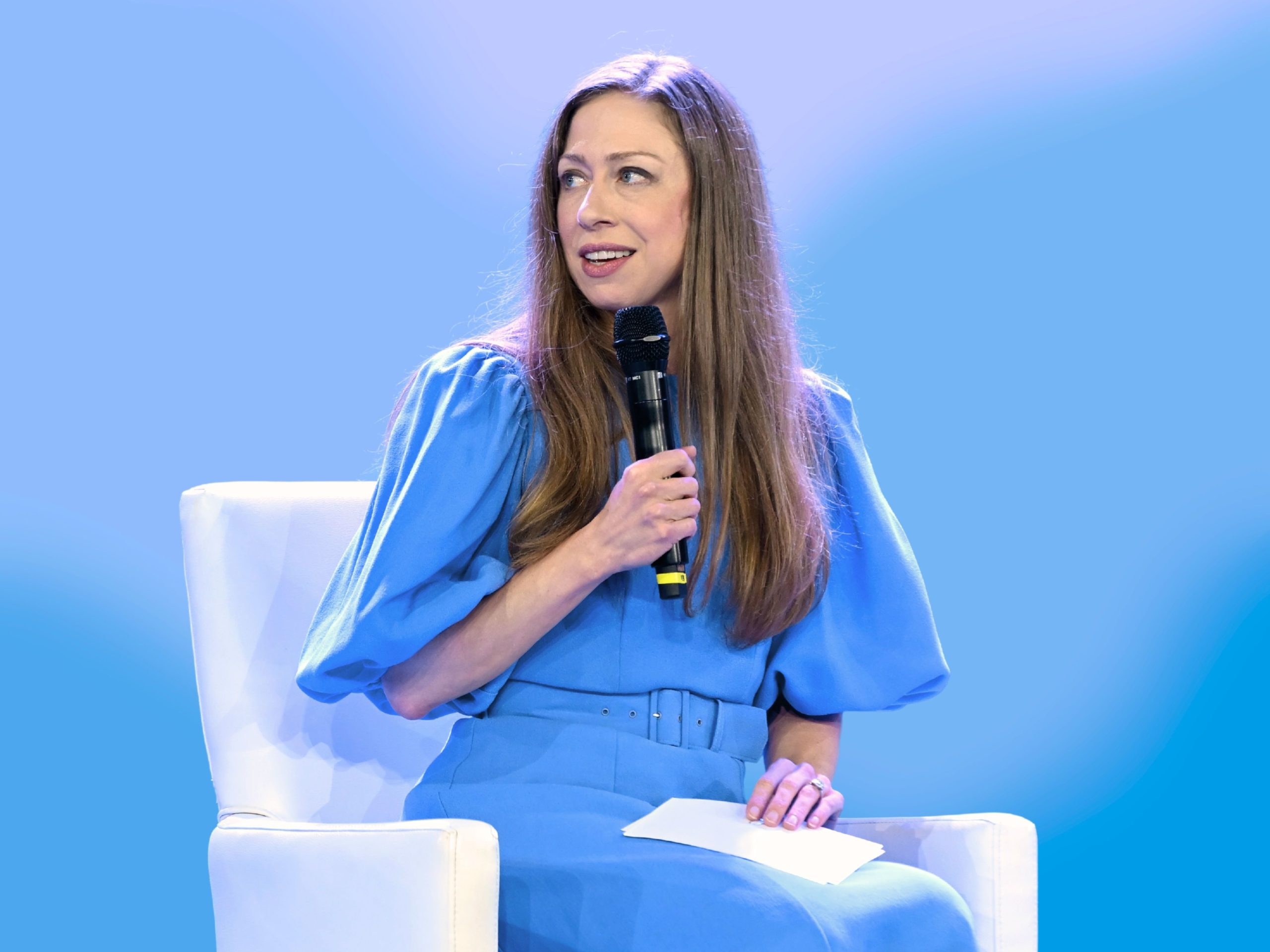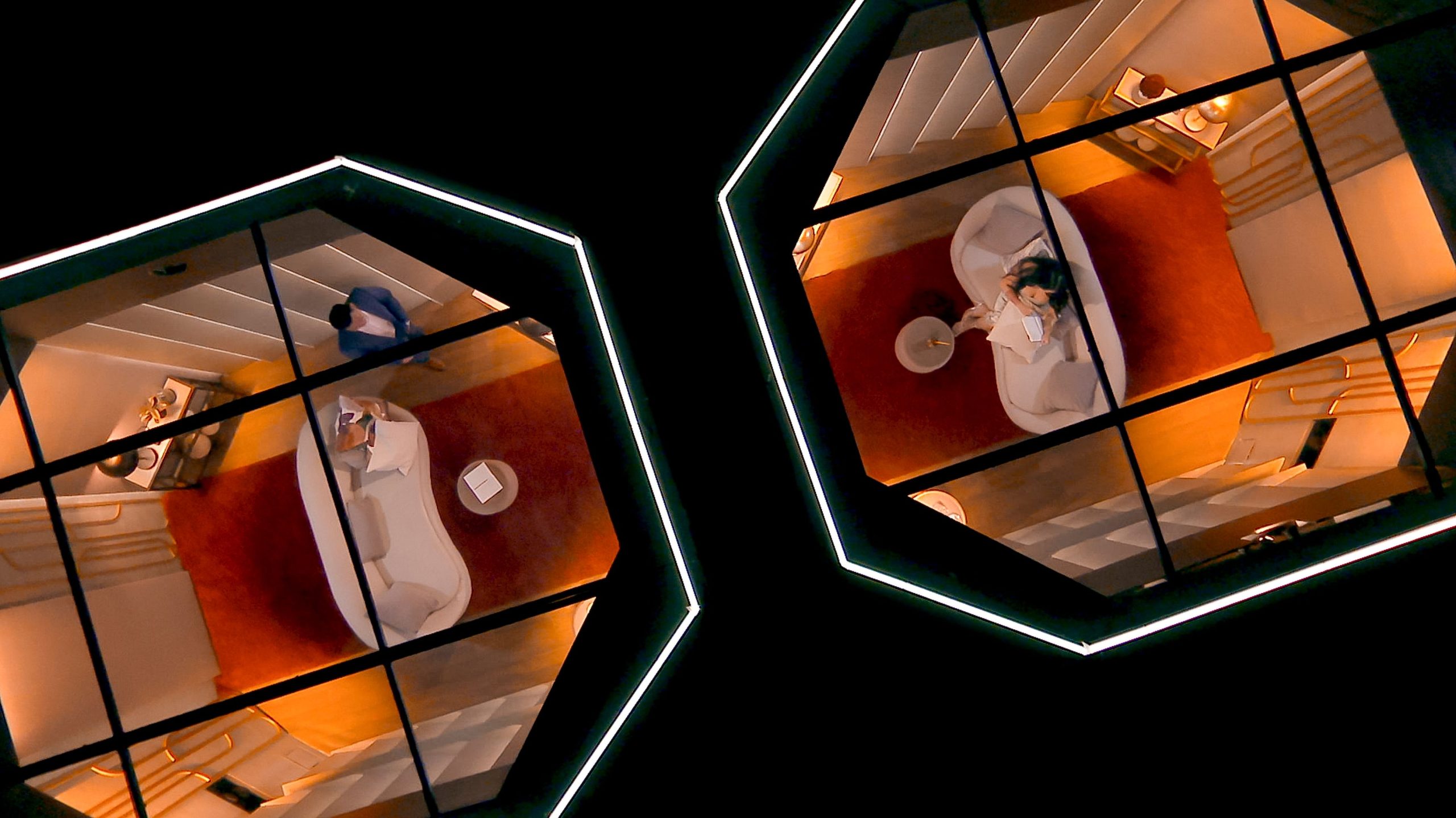Chelsea Clinton, DPhil, MPH, has a vivid memory of her grandmother telling her about the release of the polio vaccine: “It was one of the greatest moments of her life. She stood in line with her kids for six hours so they could all get it,” she tells SELF. So you can imagine the recent discourse questioning if polio was really that bad has been particularly unsettling for Dr. Clinton, who’s studied, written about, taught classes on, and advocated and raised money for public health for decades. It’s among the many pieces of health misinformation in the zeitgeist lately that motivated her to create the podcast That Can’t Be True, out October 2. In each episode, she chats with different highly credentialed experts to distinguish a flurry of misguided wellness trends from real science on how to live well.
The time is ripe for the podcast, Dr. Clinton says, “as the volume of mis- and disinformation percolating around public health feels as if it’s growing instead of shrinking.” It’s not all of the same ilk, either. Some of it springs from “people who are trying to sell you the antidote to whatever harm they’ve declared,” Dr. Clinton notes. That’s the old-fashioned snake-oil salesperson, who, in a modern context, might claim that seed oils are bad for you (it’s been widely debunked) just to sell you, say, olive oil.
But there’s also a portion of misinfo that comes from “longstanding beliefs that may seem like they make sense” and have a layer of “drama and bombast” to them that lets them spread on social media, Dr. Clinton points out. Take, for example, the idea that evidence-based sex education (including information on contraception) causes teens to have more sex. This has never been proven true, but it’s easy to see how some folks might believe this—and how it could pick up steam online. Dr. Clinton also cites a 2021 review of studies on COVID-related social media posts finding that, in some cases, as many as 30% included misinformation. Sure, that means at least 70% consisted of high-quality information, she concedes, but more than a quarter of the content being at least partly false is still “quite a lot.”
Helping debunk today’s most prevalent wellness myths feels like a natural role for Dr. Clinton, who previously hosted a pandemic-era podcast with a similar bent, In Fact With Chelsea Clinton. She’s been passionate about public health since well before her multiple degrees and advocacy work, tracing her first interest to a night at her father’s presidential campaign headquarters at the age of 11. A clip about Magic Johnson revealing that he had HIV popped up on the local news, and a broadcaster commented on how much bravery that took. “I remember thinking, bravery is standing up to bullies. Why would something about your health require bravery?’” Dr. Clinton says. She would go on to dedicate years of her life to studying the AIDS epidemic, in part because of the instinct that someone shouldn’t need courage to discuss health—that contracting a condition is often a public, rather than personal, fault.
And yet, despite her experience and credentials, Dr. Clinton has often been accused of “being in the pocket of Big Pharma” when sharing evidence-based information around current health topics. It’s a challenge faced by many experts as well as journalists (I, for one, have been maligned as a shill for Big Food multiple times, thanks to reporting on things like ultraprocessed foods). And it’s one that Dr. Clinton anticipates will surface around her new podcast too, despite the fact that she has “never taken a cent from any pharma company,” she clarifies. Some of these claims, she says, are the result of the “mirror effect”: The snake-oil salespeople who are indeed getting paid to market unproven products or push “alternatives” for things not shown to be harmful are “reflecting back what they themselves are actively doing,” she says.
Other people, however, just have a healthy sense of skepticism—and that’s totally fair, she notes. “There are terrible examples of prominent people lying about our health—for instance, the people at tobacco companies who knew smoking was bad for us decades before they publicly acknowledged it,” she says. Some say Big Food is implicated in a similar way by intentionally creating hyper-palatable products that we can’t stop eating, often to the detriment of our health.
It’s the reason Dr. Clinton actively encourages considering the source of any health info you consume. Applying that lens of skepticism across the board will ultimately help you separate the legitimate experts like Dr. Clinton from the people who are indeed profiting off of a nonscientific stance—and, in turn, sift out what can be trusted versus not.
Dr. Clinton also plans to build trust among listeners by “being really humble about what I don’t know and asking genuine questions,” and of course, ensuring that “the topic of each episode is matched by someone with real, unimpeachable expertise,” she says. That is, people who have spent a substantial amount of time studying it, publishing research on it, teaching on it, or all of the above—for instance, pediatrician Peter Hotez, MD, PhD, on vaccines and nutrition scientist. Jessica Knurick, PhD, on seed oils.
The podcast also won’t just be about debunking the junk; there will be episodes highlighting the good stuff in wellness too. One trend that Dr. Clinton is especially excited about is the growing focus on sleep. In her view, the hype is long overdue. “There’s so much in the wellness space about detoxifying ourselves and getting to a good homeostasis, and we know that while we’re sleeping is literally when our body is repairing itself,” she says. Same goes for the buzz around digital wellness. “Efforts to explore the impact of our relationship with technology on mental health and instill better digital habits in kids are great,” she says.
There will also be candid convos about the items in the wellness discourse that are “idiosyncratic,” Dr. Clinton notes—the things that aren’t so clearly helpful or harmful but are probably benign. For instance, “I have a really good friend who drinks a glass of celery juice every morning with her family, and she’s convinced that it’s a vital part of their nutritional regime,” Dr. Clinton says. “Maybe it is, maybe it isn’t. There are plenty of things we don’t yet fully understand about individual-level nutrition—and it’s important to be honest about that.”
Related:
- Yes, Fluoride in Your Drinking Water Is a Good Thing
- How the MAHA Food Agenda Threatens to Set Women Back Decades
- Just Some Truly Concerning Things Dr. Oz Has Said About Health and Medicine Over the Years
Get more of SELF’s great service journalism delivered right to your inbox.

AI Content Analysis
This content has been analyzed for AI generation:
- AI Probability: 0%
- Confidence:
- Last Checked: October 3, 2025


